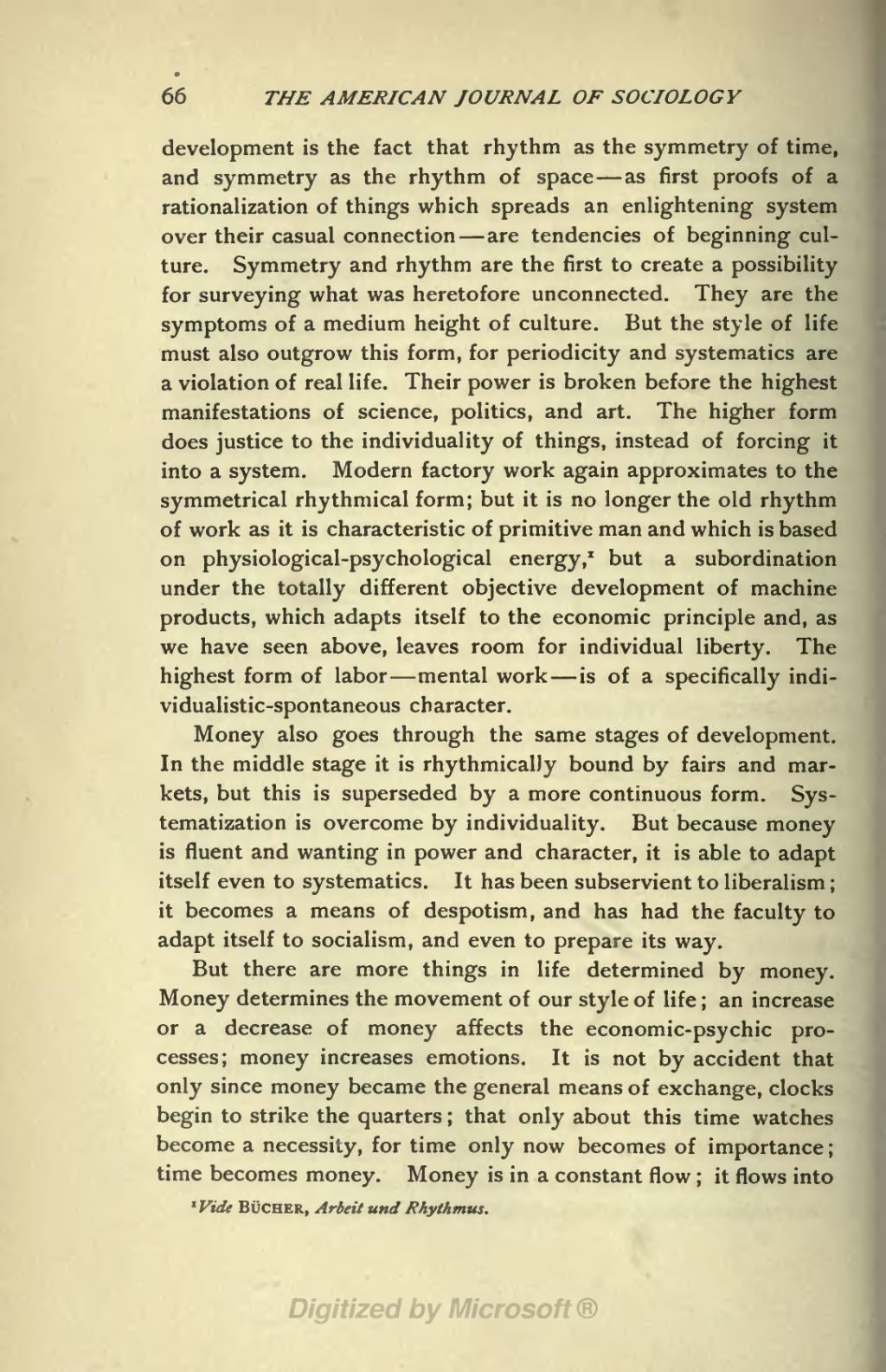66 THE AMERICAN JOURNAL OF SOCIOLOGY
development is the fact that rhythm as the symmetry of time, and symmetry as the rhythm of space as first proofs of a rationalization of things which spreads an enlightening system over their casual connection are tendencies of beginning cul- ture. Symmetry and rhythm are the first to create a possibility for surveying what was heretofore unconnected. They are the symptoms of a medium height of culture. But the style of life must also outgrow this form, for periodicity and systematics are a violation of real life. Their power is broken before the highest manifestations of science, politics, and art. The higher form does justice to the individuality of things, instead of forcing it into a system. Modern factory work again approximates to the symmetrical rhythmical form; but it is no longer the old rhythm of work as it is characteristic of primitive man and which is based on physiological-psychological energy, 1 but a subordination under the totally different objective development of machine products, which adapts itself to the economic principle and, as we have seen above, leaves room for individual liberty. The highest form of labor mental work is of a specifically indi- vidualistic-spontaneous character.
Money also goes through the same stages of development. In the middle stage it is rhythmically bound by fairs and mar- kets, but this is superseded by a more continuous form. Sys- tematization is overcome by individuality. But because money is fluent and wanting in power and character, it is able to adapt itself even to systematics. It has been subservient to liberalism ; it becomes a means of despotism, and has had the faculty to adapt itself to socialism, and even to prepare its way.
But there are more things in life determined by money. Money determines the movement of our style of life ; an increase or a decrease of money affects the economic-psychic pro- cesses; money increases emotions. It is not by accident that only since money became the general means of exchange, clocks begin to strike the quarters ; that only about this time watches become a necessity, for time only now becomes of importance ; time becomes money. Money is in a constant flow ; it flows into
- Vide BUCHER, Arbeit und Rhythmus.
